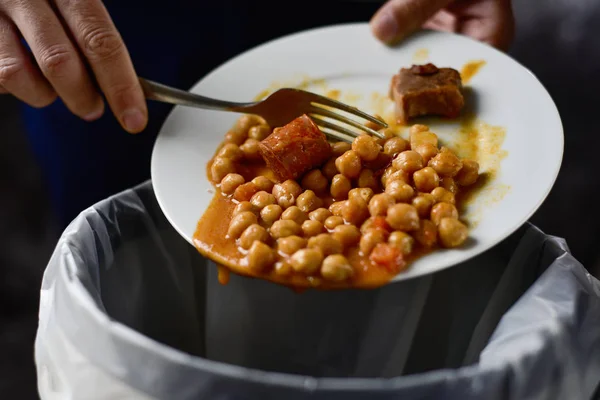Food waste is a global challenge with significant environmental, economic, and social consequences. Each year, millions of tons of food are wasted while resources like water, energy, and land are used inefficiently. Whether you’re an individual seeking to make more sustainable choices or a family aiming to cut back on unnecessary spending, reducing food waste can make a meaningful impact.
This guide will offer practical solutions to help reduce food waste in your everyday life. From smart meal planning to creative cooking, you’ll learn how to make the most of the food you buy, save money, and contribute to a healthier planet.
Understanding the Problem of Food Waste
Food waste occurs across the entire supply chain—from the farms where food is grown, to grocery stores, restaurants, and homes. In fact, roughly one-third of all food produced globally is wasted. This not only represents an economic loss but also places a strain on natural resources, such as water and energy, that are required to grow, transport, and store food. Moreover, when food is thrown away, it often ends up in landfills, where it decomposes and releases methane, a potent greenhouse gas that accelerates climate change.
Related: Sustainable Living: 10 Simple Swaps to Save Money and the Planet
The Environmental Impact
Food waste accounts for approximately 8-10% of global greenhouse gas emissions. Producing food that goes uneaten uses resources like water and energy, and when wasted food decomposes in landfills, it generates methane, further contributing to climate change. Reducing food waste is a simple and effective way to cut down on your carbon footprint.
The Economic and Social Cost
In addition to environmental damage, food waste also leads to significant financial loss. Wasting food means wasting money that could be saved or redirected to more pressing needs. Additionally, in a world where millions face hunger, reducing food waste could help alleviate food insecurity by making better use of the food we already have.
Tips for Reducing Food Waste
Here are practical strategies for reducing food waste that anyone can adopt, whether you’re managing a household, living alone, or running a food business.
1. Planning and Preparation
- Meal Planning: A well-planned menu can significantly reduce food waste. Before heading to the grocery store, create a meal plan for the week based on what you already have at home. This ensures that you’re not buying items you don’t need or won’t use.
- Check Your Inventory: Take regular stock of what’s in your fridge, pantry, and freezer. Knowing what you already have on hand helps avoid buying duplicates and ensures that you use food before it goes bad.
- Portion Control: Cooking or serving too much food often results in leftovers that may not get eaten. Pay attention to portion sizes when cooking to avoid making more than you need. If you do have leftovers, plan to use them for another meal rather than letting them spoil.
2. Smart Storage Solutions
- Proper Food Storage: Storing food correctly can extend its life and prevent spoilage. For example, certain fruits and vegetables keep better in the fridge, while others should be stored at room temperature. Use airtight containers for leftovers to preserve freshness.
- Labeling: Label your leftovers and pantry items with the date they were prepared or purchased. This simple habit will remind you to use older items first and reduce the risk of forgotten, spoiled food.
- First In, First Out: Organize your pantry and refrigerator using the “first in, first out” method. This means placing older items in front so they get used before newer purchases. Keeping things organized ensures that nothing goes unnoticed until it’s too late.
3. Get Creative in the Kitchen
- Repurpose Leftovers: Turn leftovers into new meals. For example, roasted vegetables can be blended into soups, and cooked rice can be used in stir-fries. With a little creativity, yesterday’s meal can become today’s lunch without wasting food.
- Use Recipe Generators: Online tools and apps allow you to enter the ingredients you have on hand and generate recipes based on what you already own. This prevents unnecessary trips to the store and ensures that nothing goes to waste.
- Composting: Even with the best efforts, some food waste is inevitable. Composting food scraps like vegetable peels, coffee grounds, and eggshells can reduce the amount of waste that goes to landfills while creating nutrient-rich soil for gardening.
Smart Grocery Shopping Habits
Reducing food waste starts at the grocery store. Here are some strategies to help you buy more mindfully.
- Shop with a List: A shopping list ensures you only buy what you need. Without a plan, it’s easy to overbuy, especially when tempted by sales or bulk offers. Sticking to your list reduces the chance of purchasing items that will go uneaten.
- Buy in Bulk—When It Makes Sense: While buying in bulk can reduce packaging waste and save money, it’s important to only buy in bulk for items that have a long shelf life or that you know you’ll use before they expire. Non-perishable items like grains, beans, and dried pasta are ideal for bulk purchasing.
- Understand Expiration Dates: Confusion over expiration dates often leads to unnecessary waste. “Best by” dates refer to food quality, not safety, meaning the food may still be safe to eat after this date. Use your senses to check for freshness before discarding food that’s past its “best by” date.
- Support Local and Seasonal: Buying local and seasonal produce not only supports local farmers but also reduces the distance food travels, helping to cut down on emissions. Additionally, local produce tends to be fresher, meaning it lasts longer in your kitchen.
Read More: Why eating local food is better and healthier for you
Leveraging Technology to Reduce Food Waste
Technology offers a range of tools to help manage food consumption and reduce waste.
- Food Waste Apps: Apps like “Too Good To Go” and “OLIO” connect consumers with local businesses and individuals who have surplus food, allowing you to rescue meals that might otherwise be thrown away. These platforms help prevent waste while offering discounted prices.
- Meal Planning Tools: Apps like “Mealime” or “BigOven” provide customized meal plans based on your dietary preferences and what you already have at home. This not only helps reduce waste but also saves time and money.
- Track Your Consumption: Keep a log of what you eat and what gets thrown away. This will help you identify patterns and make adjustments to your buying habits. Many apps now allow you to track food consumption and provide reminders to use up ingredients before they spoil.
Reducing Food Waste at Restaurants and Events
Food waste doesn’t just happen at home—it’s also a big issue in restaurants and during events. Here are a few tips to minimize waste when eating out or hosting.
- Order Wisely: When dining out, be mindful of portion sizes. If you’re unsure whether you can finish a meal, consider sharing dishes with others. Always ask for a container to take leftovers home.
- Buffet Management: If you’re hosting or attending a buffet-style meal, take smaller portions to avoid overloading your plate. Going back for seconds is always an option if you’re still hungry.
- Event Planning: If you’re hosting a large event, work with caterers to plan portion sizes carefully. Consider donating leftover food to local shelters or food banks rather than throwing it away.
Read Next: 18 best ideas in reducing food waste and value addition
Food Waste and the Broader Community
Reducing food waste is a collective effort. From individual households to large-scale businesses, everyone can play a role in addressing this issue. You can also get involved in food rescue programs, donate excess food to local food banks, and advocate for policies that encourage waste reduction at the corporate and governmental levels.
Conclusion: Small Steps Lead to Big Changes
Reducing food waste is not only a sustainable choice but also an easy one. By making small adjustments to how we shop, store, cook, and dispose of food, we can cut back on waste, save money, and protect the planet. Whether you’re an individual looking to reduce your personal food waste or a business aiming to adopt more sustainable practices, every little bit helps.
By adopting these habits, you contribute to a healthier planet, a more efficient food system, and a better future for everyone. Start today by evaluating your current habits, implementing these tips, and encouraging others to do the same.



